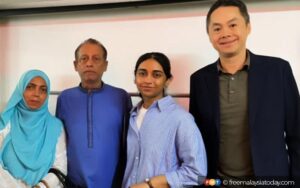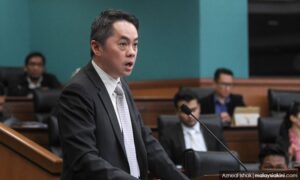By Raina Ng | Baccarat Malaysia
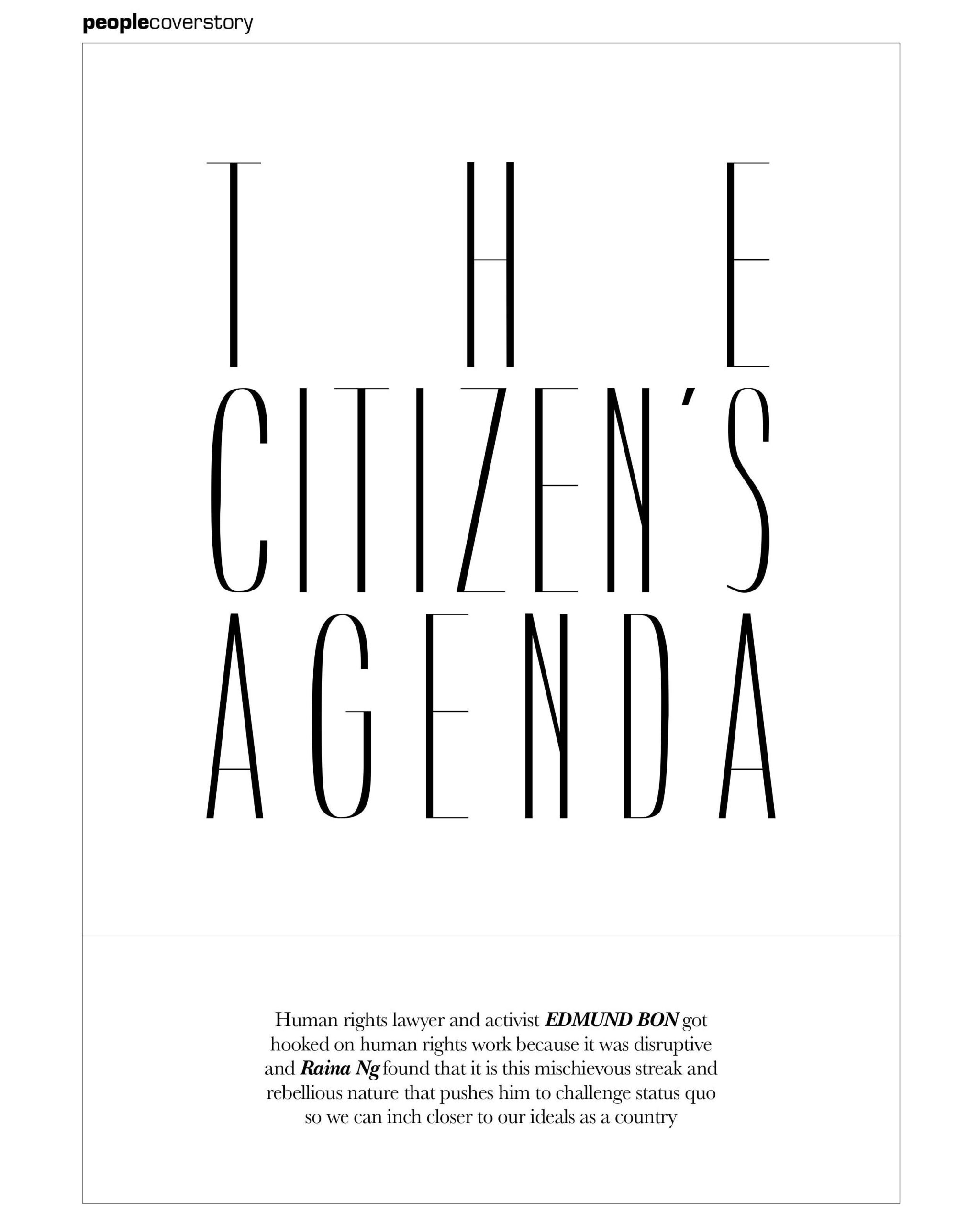
Edmund Bon has a signature look that is a tired drawn out face captured in a talking stance while frowning. That Bon-look is the customary image of Edmund strewn across the internet; that and a host of local reports and articles tagged with terms such as constitutional law, human rights and the latest, sedition. How ever many hats Edmund wore, from loyarburokker to activist and human rights lawyer, he seemed to be the go-to guy if you are the victimised underdog, or the sidelined citizen. That was the impression we had even before we met him.
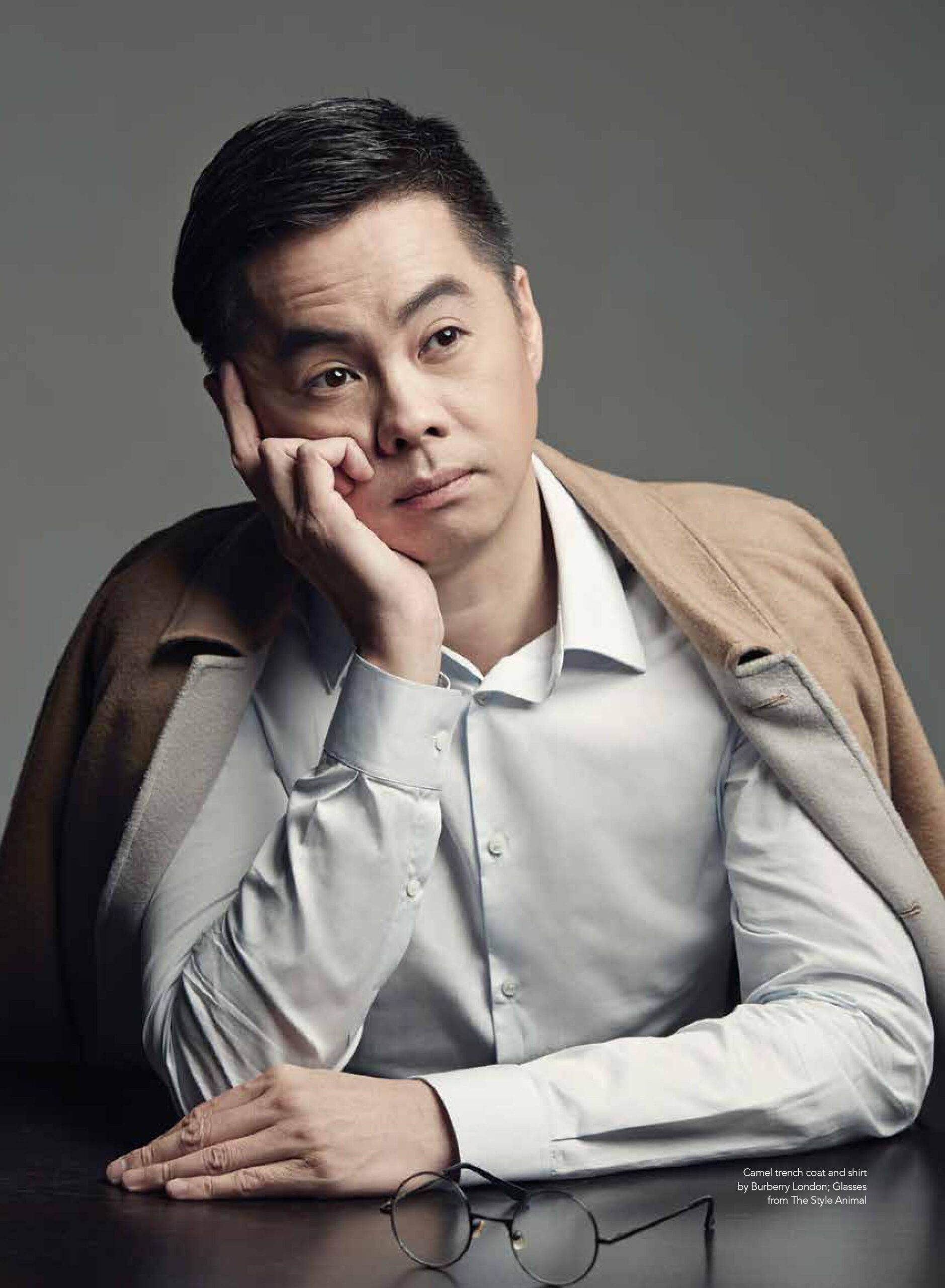
We were readily expecting a serious no-nonsense sort that was more than ready to ram causes down our throats with a sort of self-righteousness and snobbery laced along the edges (from being Oxonian). But when he casually strolled into the studio on the Sunday morning, we found a no-frills down-to-earth Malaysian whose mischief brewed and broke forth during the interview. We found him, throughout the photo-shoot, to be a patient listener with a rebellious streak. Edmund Bon is hardly fearful when it came to questioning and challenging status quo whenever necessary.
How it all began for him can be found in answers to interview questions he has been asked one time too many. Edmund recalls a brief boyhood set in Damansara but the 1974-baby calls Ampang his hood. He once told The Nut Graph that his childhood was a boring one apart from the time when his ears were injured by the lidi. But Edmund seemed already inclined, even at a young age, to always be looking for a life of being “anti-establishment”. Then law found him by accident. “My friends all did law so I followed la,” he said. “I found it very interesting, the arguments were rational. And there are different viewpoints that could be expressed and expounded. It was not just black and white, it was grey.”
Looking at the 16 years or more he has been in practice, his accidental career is a fitting one. Since his days as a pupil Edmund had continuously shouldered the work that seemed to have already been carved out for him. He returned from the UK during the 1997/98 Reformasi period, and got involved, as a pupil, at the Bar Council Legal Aid Centre in KL. “It was then we were infused with these values because almost everyday we were defending Reformasi activists who were detained for illegal assemblies and some under the Internal Security Act.”
“We became more radicalised, sensitised towards problems and issues faced by people in the country. Being a part of that Reformasi generation gave us a lot of courage to try and change things.” This moved many of Edmund’s contemporaries towards a political career. It moved Edmund to dig deeper into the realm of human rights. He went on to complete a Masters in International Human Rights Law at the University of Oxford “because human rights was,” as he called it, “disruptive”.
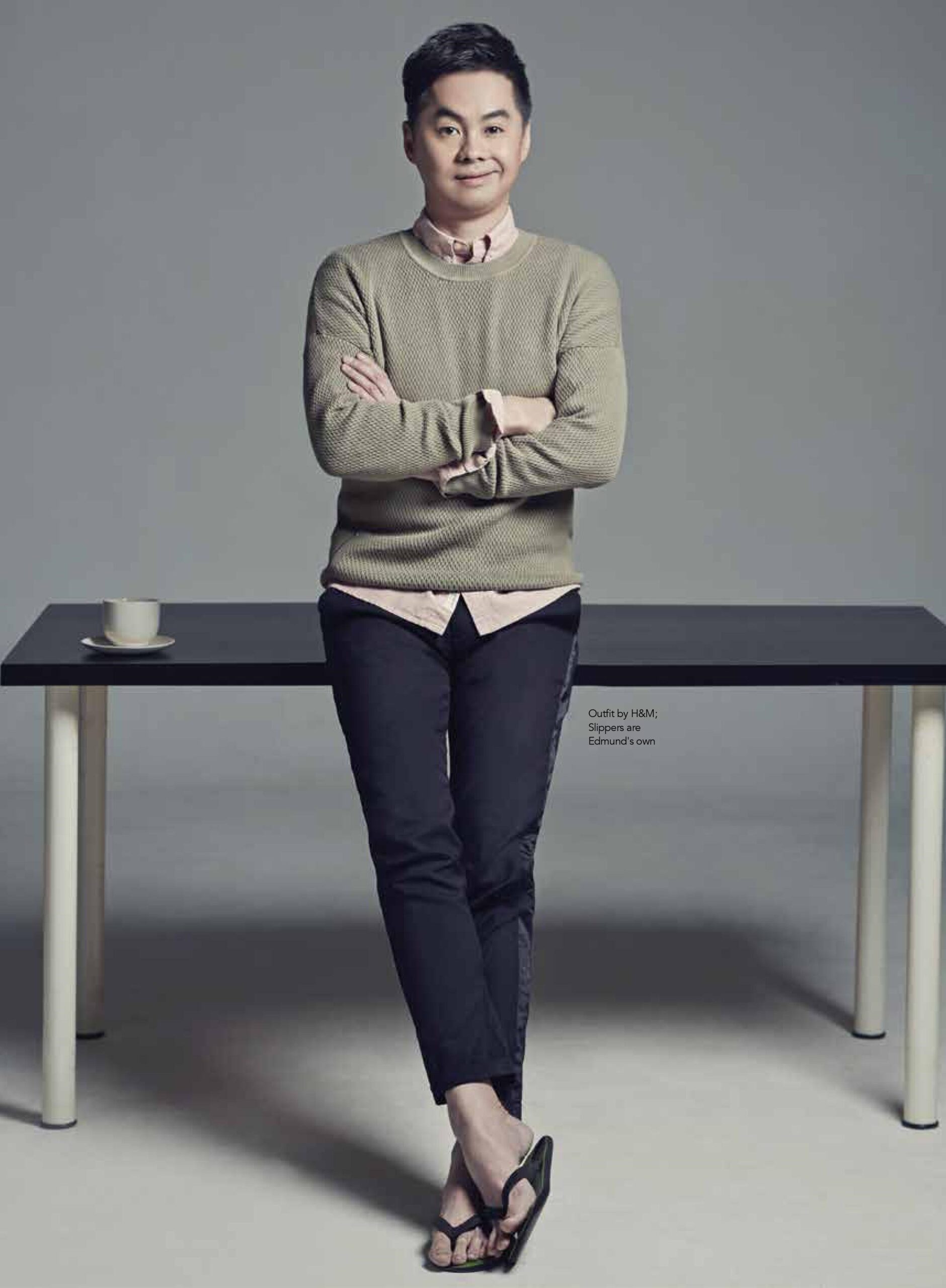
Edmund grew to become an advocate for change within the Malaysian civil society, and the legal scene. During his years in practice, Edmund has been aggressively defending those he deemed the underdogs and apart from actively taking on these public interest cases he was a member of the Malaysian Bar Council chairing the National Young Lawyers’ Committee (2006-2008), Human Rights Committee (2007-2009) and Constitutional Law Committee (2009-2011). He also started up several social interest platforms such as Loyarburok, MyConstitution and UndiMsia! so to ensure that the public is educated about their rights.
“Through our initiatives, we have seen successes. I have seen how important it was to educate the layperson of his or her rights and we have been quite successful with that,” and yet the junkie for change confessed to becoming bored of doing, and re-doing practice the way it has always been done. Over the years of his being deeply involved in the system the keen observer feels that legal professionals, and law professors can operate so differently. So it still is not enough for him. In his eyes, things can operate at a whole new level. “It was opportune to move on to other areas of the law of equal importance such as transacting property, matrimonial disputes and crime.” Edmund founded BON, Advocates in January last year (2014) so he could keep on pushing for more.
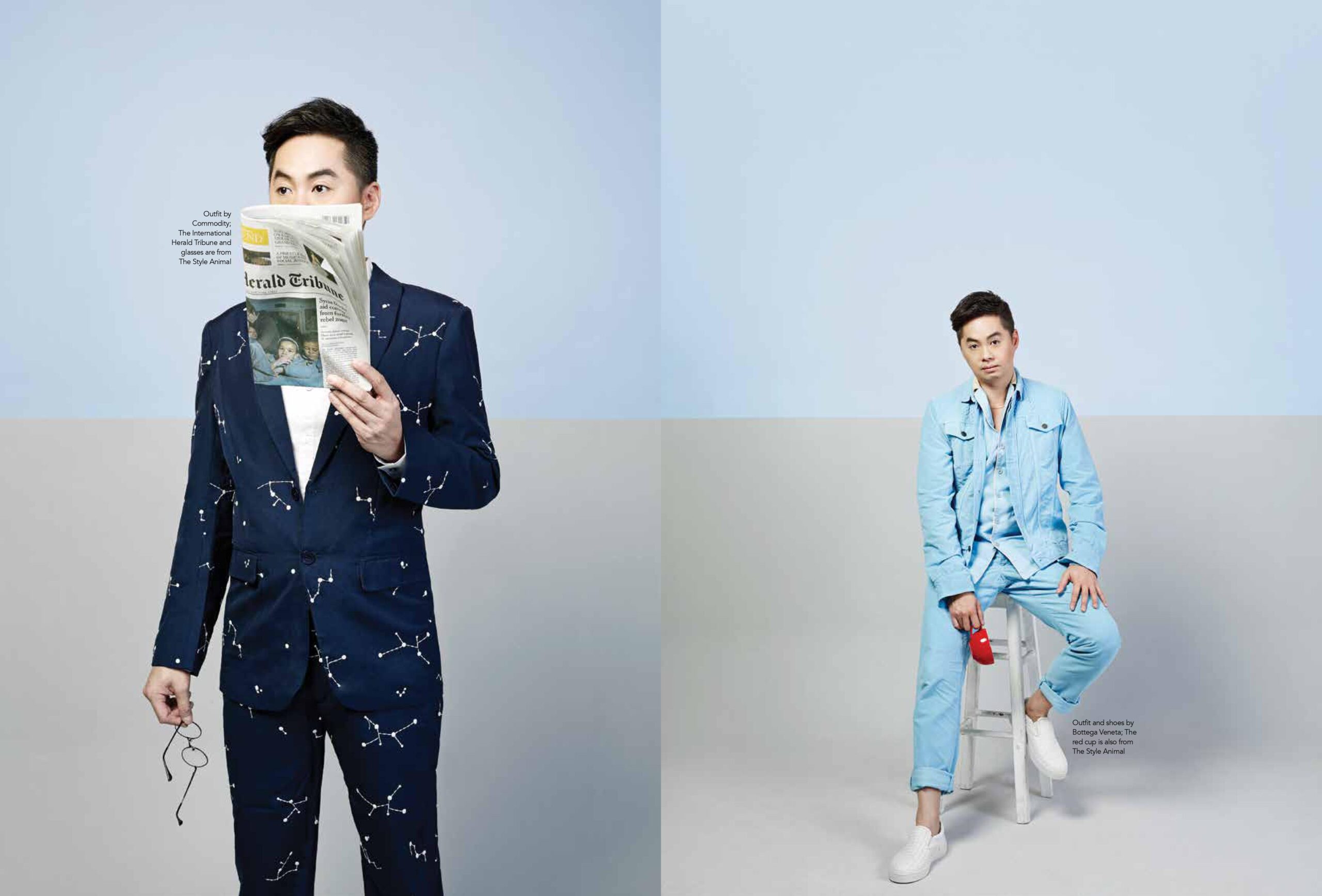
Through his firm, Edmund initiated the “Total Law Solution” in 3R’s — to revolutionise the legal profession, to radicalise lawyers and to reshape legal education. “Law must be seen as a tool for social change and a means to influence executive behaviour,” Edmund said. “A lot of people see practice as only a means of earning an income but it is much more than that. Much of what we earn should also be put back into helping people. I know people say that one cannot survive this way but I think that is untrue. We want to prove that you can thrive, and sometimes be quite comfortable.”
Edmund’s own understanding of what the legal profession should be has freed him and his team to build into his firm a core culture they hope would be adopted by the profession as a whole. “More than 40% of our practice is pro bono work. We act for oppressed students, orang asli, refugees, abused women, vulnerable children and the poor,” he continued. “Our pro bono work is actually more fun, and we always believe things must be fun.”
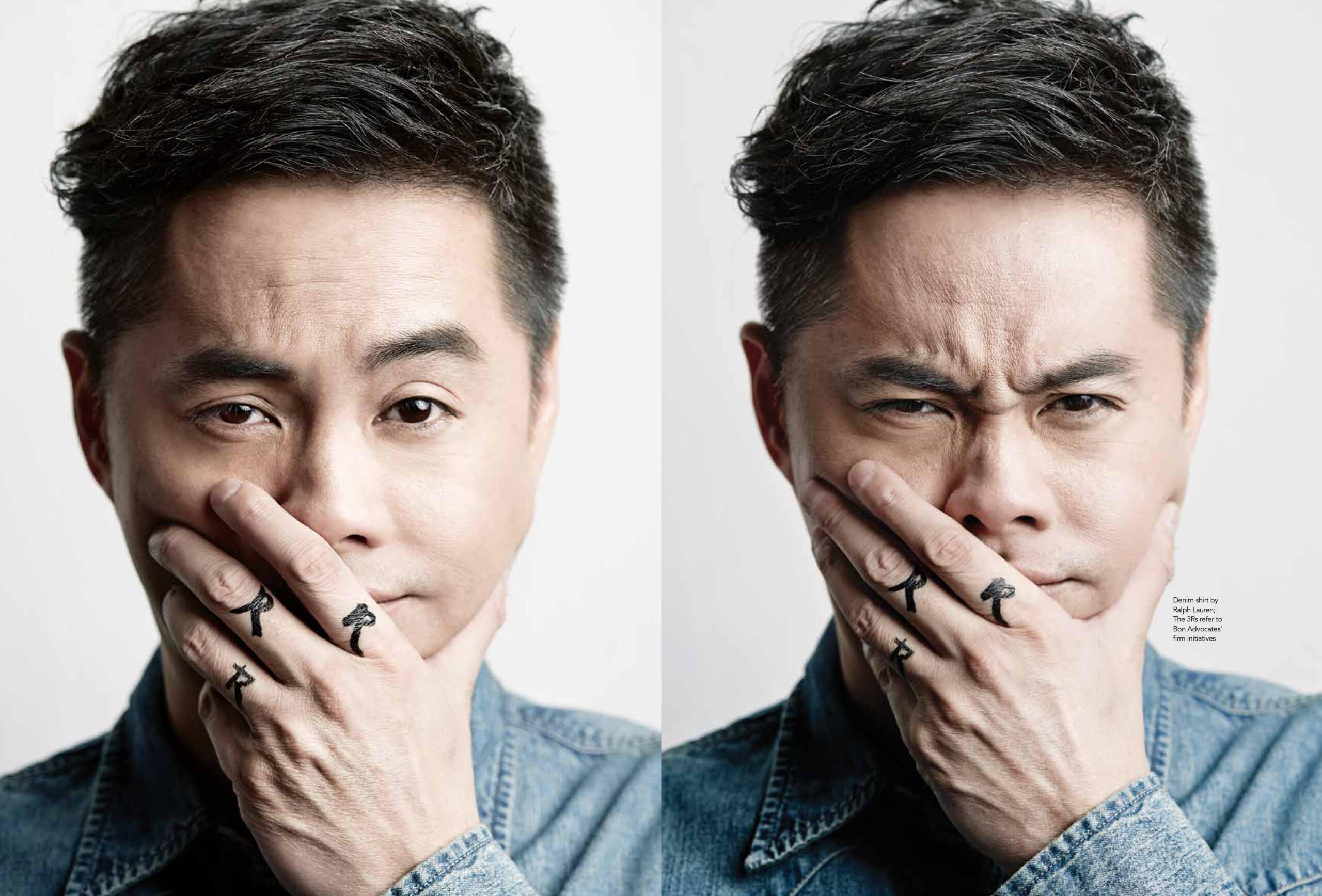
“I hate it when people come up to us, pat us on our backs and say, ‘good job, we support you’. I would reply, ‘please do something yourself’. No time and all sorts of excuses would be their retort,” Edmund continued. “There is never a convenient time. We have to make time for things we care about and are important. I always think that free public interest litigation should be undertaken as a rule rather than as a form of charity or only when time permits.”
“Law firms should not see pro bono human rights work merely as a way to brand or profile themselves, or as some sort of corporate social responsibility. We do not do it for those reasons (though armchair critics will say otherwise), but only because ultimately we genuinely believe we can reform bad things by using our skills as lawyers. The radicalisation of lawyers will reach a peak when we give lawyers the platforms and space to achieve mastery through autonomy and purpose. That is our cause.”
Then there is the project Edmund affectionately calls his “new fun”. The Collective of Applied Law and Legal Realism (CALR) is an undertaking that comes under the third R. The CALR seeks to improve the Malaysian justice delivery system. One of the means is by “DIYLaw” which is a database of templates for standard form legal documents such as sales and purchase agreements for property transactions, uncontested wills and probate matters, accident claims, divorce petitions, and mitigation and bail applications. Along with the templates would be an easy-to-use guide. It hopes to launch the database this year.
“In essence this is to simplify the law and empower the layperson to use the law for themselves,” said the man. While the move has created an uproar within the legal community, Edmund feels that it is a lawyer’s job to facilitate public access to justice by breaking down law for everyone and anyone to use. With this, hopefully, the public will begin to find the legal system, and justice more accessible. The law will, rather than being the incomprehensible animal it is, become a tool people can use to access their rights. “Lawyers are supposed to make things easy,” he added. “We should not try to complicate things or make justice inaccessible.”
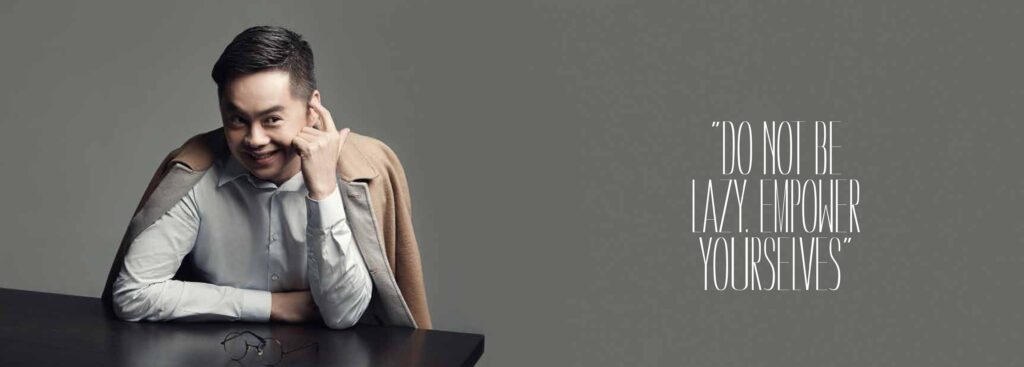
“I am an existentialist,” declared the man as he poses for one of the shots. “I create my own purpose in life, and help others find theirs.” While it seemed that Edmund started off without much of an agenda, a quick look back at the series of projects he has initiated over the years demonstrates a clear purpose. He has a cause in ensuring that as long as things are not just, or fair, they need to be questioned, challenged, changed. And most importantly, people need to have a claim to their rights.
The legal system, as Edmund opined, is there to create a safe space for human beings. It is set up to enable humans to flourish rather than to prohibit, or rule. By granting fair treatment, self-determination and non-discrimination, law should in theory provide equality of opportunity for all. “These are necessary to establish a just social order.”
“Without the right to freedom of expression I would not be able to speak to you now and you would not be able to publish your magazine. Without the right to travel freely I would not be able to do this photoshoot. If the government removes your home to build a highway, you have a right to compensation for your land. Should a student be denied entry to a university because of his or her racial origin, he or she should be able to strike down that denial. These are rights but we often take them for granted,” he added.
“Human rights used to be a dirty word until activists and campaigns mainstreamed the concept. Today everyone especially the young is talking about their rights as if it was second nature. But we still have a long way to go. We have yet to sign many of the important conventions on civil and political, economic, social and cultural rights.” As a nation, Edmund feels that we have come some way and instead of focusing on the negatives, we should see how many have evidently stood up for something in the last few elections. Human rights is the responsibility of all and one of the things we can do is to vote. “We need to elect better leaders who have the foresight to enact laws that will protect the marginalised and the oppressed,” Edmund declared. “And then vote every day with what you do with your lives. Do not be lazy. Empower yourselves. There is much information out there, and instead of waiting for others to do it on your behalf take causes up yourself. More knocking on the gates would cause a breakthrough faster than if only some did.”
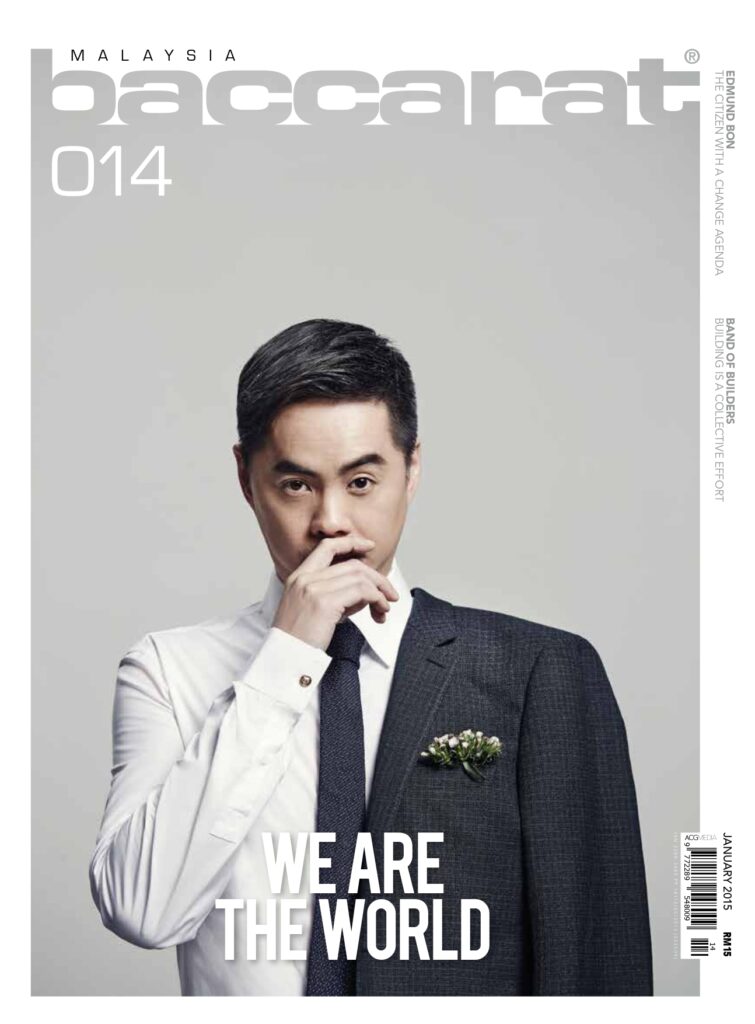
Source: https://www.amerbon.com/wp-content/uploads/201501-NG-The-citizens-agenda-Baccarat-Malaysia.pdf


